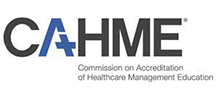Andy Ni, PhD, Assistant Professor
Biostatistics
1841 Neil Ave
280D Cunz Hall
Columbus, OH 43210
https://cph.osu.edu/people/ani

An optimal treatment rule (OTR) assigns an optimal treatment to subjects based on their personal characteristics. An archetypal OTR estimation approach is the outcome weighted learning (OWL), which is based on a weighted classification framework. OWL has been developed for time to event outcome with a single event of interest. In biomedical research, time to a composite outcome that consists of multiple event types is often encountered. In this study, we propose a contrast-weighted learning (CWL) method to estimate OTR with composite survival outcomes with multiple event types. The proposed method employs a win indicator from pairwise sequential comparison of time to different event types as the weight in the weighted classification framework. It naturally incorporates clinical priorities of multiple event types into OTR estimation. Since the win indicator depends on the censoring time distribution, we use the inverse probability of censoring weighting to adjust for censoring. We establish theoretical properties of the estimated OTR. We conduct simulations to evaluate finite sample performance of the proposed method. Finally, we apply the proposed CWL to an EMR dataset from OSU Wexner Medical Center to estimate an OTR to assign either direct oral anticoagulants or warfarin to atrial fibrillation patients to maximize their time to a composite of cardiovascular events.




